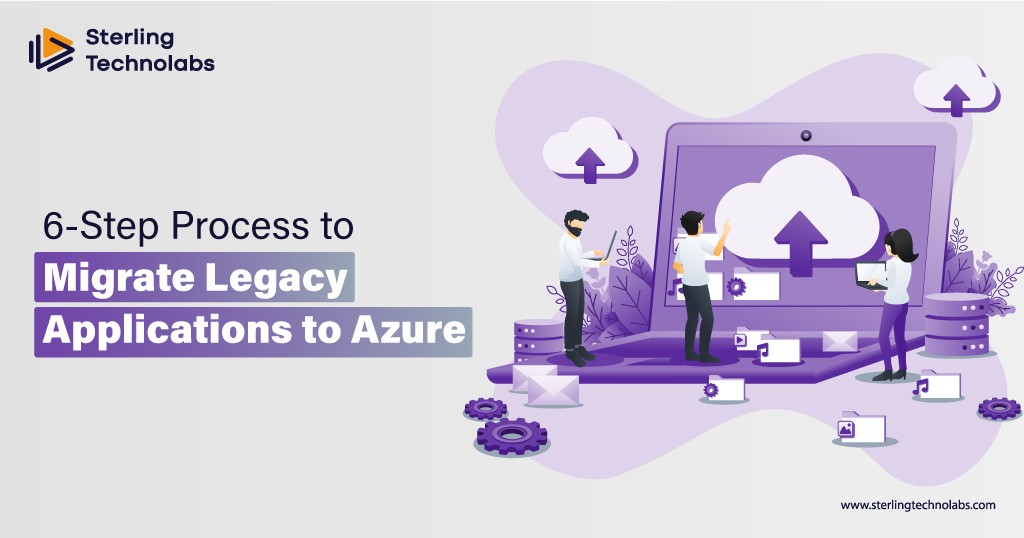In today’s fast-paced, competitive business landscape, organizations constantly look for ways to optimize their software development processes and improve overall operational efficiency. One approach that has gained significant traction in recent years is DevOps, a set of practices that combines software development (Dev) and IT operations (Ops) to foster collaboration, streamline workflows, and accelerate the delivery of high-quality software applications. DevOps has become a game-changer for many firms, and in this article, we will explore the top five reasons why organizations have been so eager to implement DevOps.
What is DevOps?
DevOps is a software development approach that combines development (Dev) and operations (Ops) teams to collaborate, communicate, and automate their workflows to deliver high-quality software applications more efficiently and effectively. DevOps promotes collaboration and transparency, where development and operations teams work closely throughout the entire software development lifecycle, from planning and coding to testing, deployment, and operations.
DevOps aims to break down the traditional silos between development and operations teams and foster a collaborative mindset where all stakeholders work together to achieve common goals. It emphasizes close collaboration, communication, and feedback between developers, operations personnel, quality assurance teams, and other stakeholders involved in the software development process. By working together in an integrated and collaborative manner, DevOps teams can improve software quality, reduce time-to-market, and enhance operational efficiency.
DevOps also emphasizes automation to streamline and optimize workflows, eliminate manual errors, and reduce the time and effort required for repetitive tasks. Automation tools are used to automate processes such as build and deployment, testing, monitoring, and provisioning of infrastructure. This allows teams to achieve faster and more reliable software delivery, with fewer errors and faster feedback loops for continuous improvement.
Top five reasons why organizations have been so eager to implement DevOps
Faster Time-to-Market:
In today’s digital world, time-to-market is a critical factor that can make or break the success of a software product or service. DevOps enables organizations to accelerate the software development and deployment processes by fostering collaboration and communication between development and operations teams. By breaking down the silos between these two functions and promoting a culture of collaboration, DevOps enables organizations to streamline their workflows, automate manual tasks, and eliminate bottlenecks, resulting in faster time-to-market for software applications. Organizations can quickly adapt to market changes, deliver new features and updates rapidly, and gain a competitive edge by being the first to market with innovative solutions.
Enhanced Collaboration and Communication:
Traditionally, development and operations teams have operated in separate silos, often leading to miscommunication, delays, and inefficiencies in software development. DevOps brings these teams together and promotes a culture of collaboration, transparency, and open communication. DevOps practices such as cross-functional teams, shared responsibilities, and continuous feedback loops foster collaboration between developers, operations, and other stakeholders, enabling them to work together seamlessly towards a common goal. This results in faster issue resolution, reduced rework, and improved software quality. DevOps also encourages using tools and technologies that facilitate communication and collaboration, such as chatbots, real-time monitoring, and collaborative documentation, further enhancing teamwork and productivity.
Automation and Continuous Integration/Continuous Deployment (CI/CD):
Automation is a core tenet of DevOps, and it plays a crucial role in accelerating the software development and deployment processes. DevOps promotes using tools and technologies that automate repetitive tasks, such as build, testing, deployment, and monitoring, reducing the risk of human error and increasing efficiency. Automation also enables organizations to implement Continuous Integration/Continuous Deployment (CI/CD) practices, where changes made by developers are automatically integrated, tested, and deployed to production in a seamless and automated manner. This results in faster feedback loops, quicker bug detection and resolution, and higher software quality. Organizations that embrace automation and CI/CD practices can achieve faster time-to-market, better operational efficiency, and improved customer satisfaction.
Improved Software Quality and Reliability:
Quality and reliability are critical aspects of software development, as poor-quality software can result in increased downtime, customer dissatisfaction, and reputational damage. DevOps promotes a culture of continuous improvement, where feedback loops, monitoring, and automation play a crucial role in identifying and fixing issues early in the development process. By integrating testing, security, and quality assurance into the software development process, DevOps helps organizations identify and fix issues faster, resulting in higher software quality and reliability. Additionally, DevOps encourages the use of practices such as Infrastructure as Code (IaC), which enables organizations to manage their infrastructure and configurations as code, making it more predictable, repeatable, and reliable. With DevOps, organizations can deliver software applications that are of higher quality, more reliable, and less prone to failure.
Cost Savings and Operational Efficiency:
Another significant benefit of implementing DevOps is cost savings and operational efficiency. DevOps enables organizations to optimize resources, reduce waste, and streamline workflows, resulting in cost savings and improved operational efficiency. By automating manual tasks, eliminating bottlenecks, and improving collaboration, organizations can reduce the time and effort required for software development and deployment, which translates to cost savings. Moreover, the early detection and resolution of issues through continuous monitoring and feedback loops can prevent costly rework and downtime. DevOps also promotes using cloud computing and virtualization technologies, which enable organizations to optimize their infrastructure and scale resources on demand, resulting in cost savings and improved agility. Organizations implementing DevOps practices can achieve better resource utilization, reduced operational costs, and improved overall efficiency.
Why Sterling Technolabs is the Best?
Among the many DevOps service providers in the market, Sterling Technolabs stands out as a leader due to its comprehensive and customer-centric approach to DevOps implementation. Here are some reasons why Sterling Technolabs is the best choice for organizations seeking to implement DevOps:
- Expertise and Experience: Sterling Technolabs has a team of highly skilled and experienced DevOps engineers who possess in-depth knowledge of DevOps practices, tools, and technologies. They have a proven track record of successfully implementing DevOps for clients across various industries, enabling them to deliver high-quality solutions that meet the unique requirements of each organization.
- Holistic Approach: Sterling Technolabs takes a holistic approach to DevOps implementation, considering not only the technical aspects but also the cultural and organizational aspects. They work closely with organizations to understand their business objectives, current processes, and pain points and design a customized DevOps strategy that aligns with their goals and requirements. Sterling Technolabs fosters collaboration, communication, and automation to drive tangible results and maximize the value of DevOps implementation.
- End-to-End DevOps Services: Sterling Technolabs offers a comprehensive range of DevOps services, covering the entire software development lifecycle. From strategy and planning to implementation, automation, monitoring, and optimization, they provide end-to-end DevOps services that cater to the diverse needs of organizations. Their services encompass various DevOps practices, including Continuous Integration/Continuous Deployment (CI/CD), Infrastructure as Code (IaC), containerization, and cloud computing.
- Tool Agnostic Approach: Sterling Technolabs follows a tool-agnostic approach, which means they select the best-fit tools and technologies based on the unique requirements of each organization. They have expertise in a wide range of DevOps tools and technologies, including popular ones such as Jenkins, Git, Docker, Kubernetes, AWS, Azure, and Google Cloud. This enables them to provide tailored solutions that leverage the right tools for each organization’s needs without being limited to a specific vendor or technology.
- Robust Customer Support: Sterling Technolabs is known for its excellent customer support and commitment to client satisfaction. They work closely with organizations throughout the DevOps implementation journey, providing continuous support, monitoring, and optimization to ensure that the implemented DevOps practices deliver the desired results. They also provide timely updates, reports, and recommendations to help organizations make data-driven decisions and continuously improve their DevOps processes.
Conclusion
DevOps has emerged as a game-changer for organizations seeking to optimize their software development processes, improve operational efficiency, and deliver high-quality software applications faster. The top five reasons firms have been so eager to implement DevOps include faster time-to-market, enhanced collaboration and communication, automation and CI/CD, improved software quality and reliability, cost savings, and operational efficiency. Among the many DevOps service providers in the market, Sterling Technolabs stands out as a leader due to their expertise, holistic approach, end-to-end DevOps services, tool-agnostic approach, and strength.



Great Post.
ReplyDeleteI enjoyed learning from your expertise and experience in this field. Thanks for sharing!
Looking for the top mobile app development company in India. Transform your ideas into innovative mobile solutions. Contact us for world-class app development services.